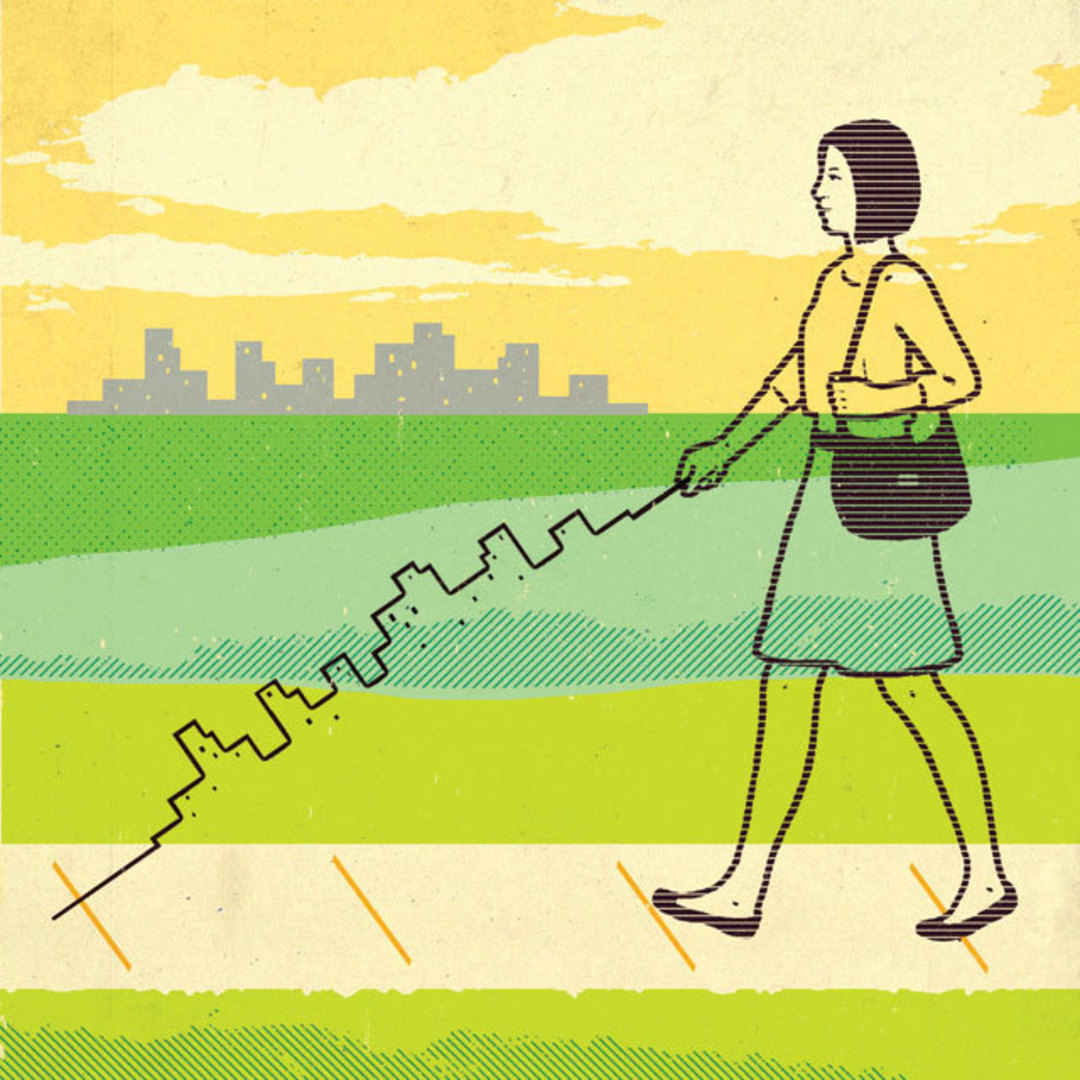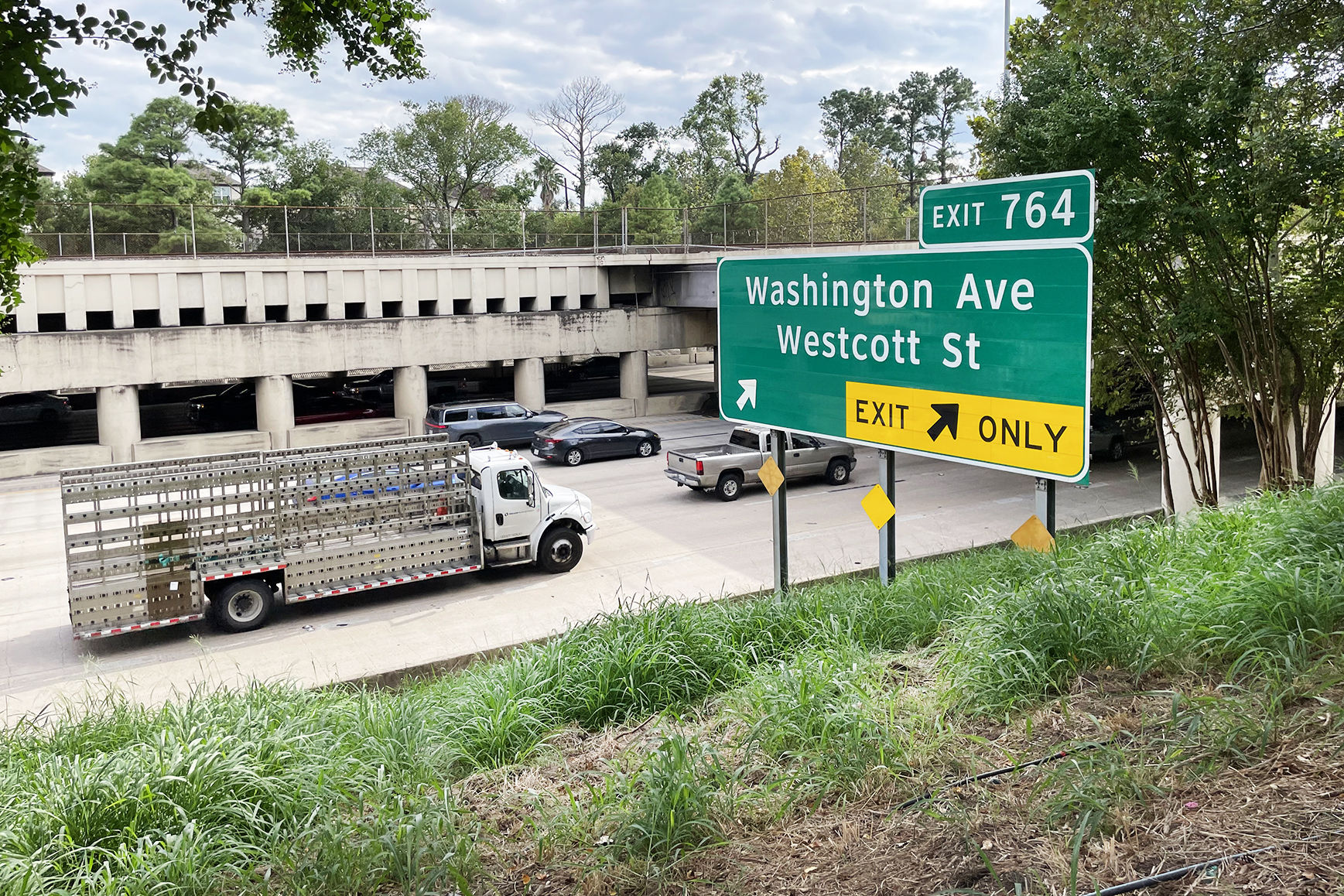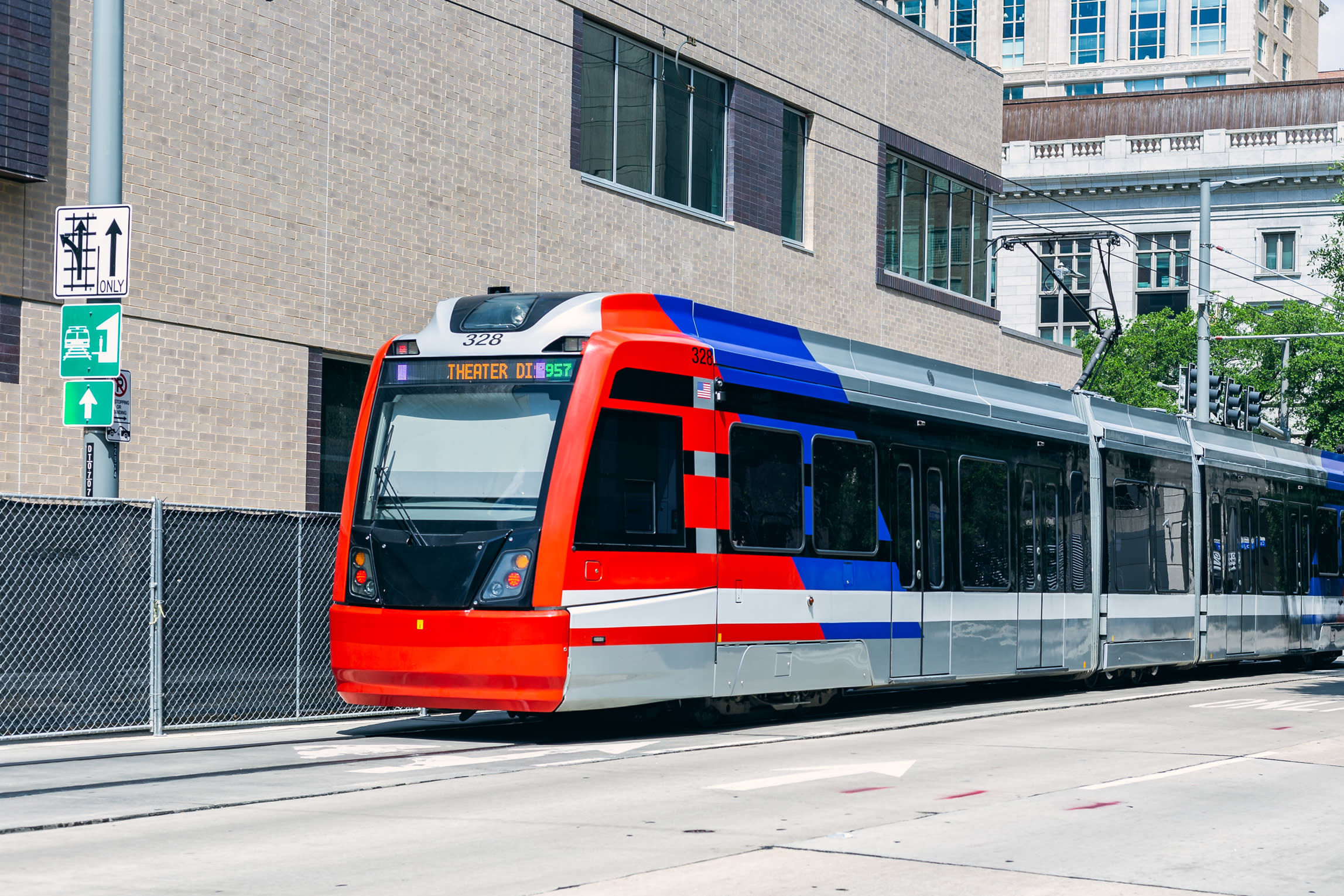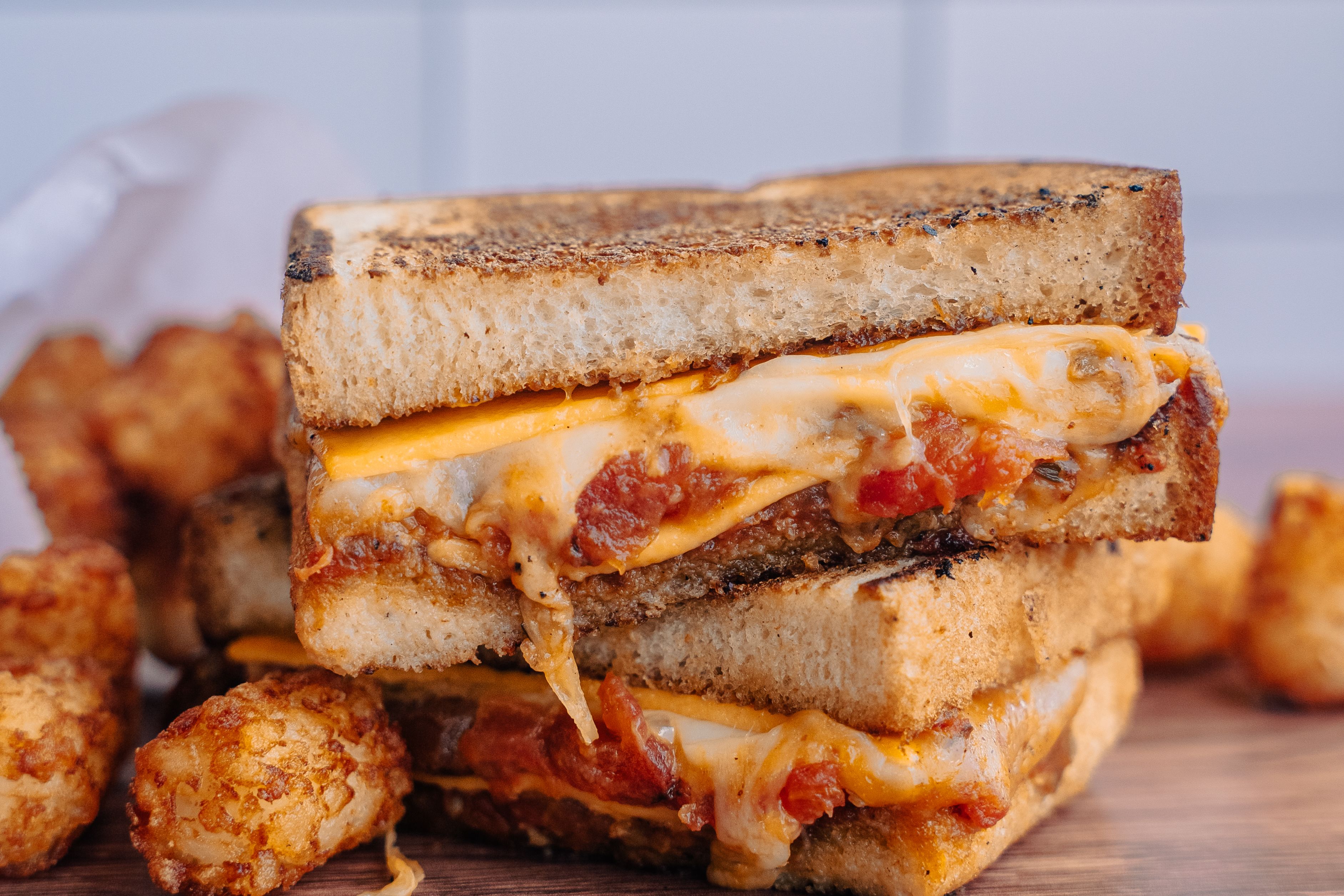The Vision Thing

Image: Dan Page
Long before last year, and the monumental life changes that came with being on a certain competitive cooking show and winning a certain prize and writing a certain cookbook, I experienced another monumental life change far from the lights of Hollywood, right here in Houston.
I remember it as a series of scorching summer afternoons in 2004. On one of them, METRO bus No. 53 pulled up to a stop, exhaled, and lowered itself to the curb. My instructor, from Lighthouse of Houston, led me to a seat. We rode a few blocks before getting off somewhere downtown—I had no idea where. I adjusted my sweat-dampened blindfold (my teacher didn’t want me to cheat) and with one hand took hold of her elbow; with the other, I gripped my cane. The day when I could no longer depend on my eyesight was fast approaching, and I needed orientation and mobility training immediately.
Together, we descended into the downtown underground. The shops were relatively quiet. I wandered along the perimeter of the shops, tapping the tip of my cane against the walls.
“What do you smell?” my instructor asked.
“Garlic,” I said.
“That’s a Chinese food stall.”
I was desperate then to commit certain odors to memory: the way a shoe store reeks of rubber, a bakery smells of bread and vanilla, a pizza joint emits both garlic and bread, a sports bar is bathed in frying oil. Tunnel tour over, I teetered onto the up escalator, soon reaching the street. There, my instructor detached herself from my grip and set me loose. I could hear and feel the whiz of oncoming traffic.
“Don’t be scared,” she called above the roaring engines. “Just take it one step at a time.”
Some of the corner street ramps had raised bumps or hatch marks, which I quickly learned could help me find the direction of the crosswalk. A few intersections even had audible tweets to signal when I could walk.
When my instructor finally pronounced the day’s lesson over, I removed the blindfold and exhaled with relief. I had returned from the unfamiliar to the familiar world, although soon enough the two would change places.
I have lived in Houston for 24 of my 34 years, but until I began losing my vision, public transportation was a foreign concept. In fact, it wasn’t until I left Houston for LA that I became acquainted with it, first as a high school sophomore who skipped class and took the bus to gawk at surfer boys on Seal Beach, and later as a college senior visiting New York City, where I first rode the subway.
Public transportation might have remained a novelty to me—something I used only outside of Houston—if it hadn’t been for Neuromyelitis Optica. I was 20 when I first began losing my vision to the disease, an autoimmune condition affecting the optic nerve. Eventually, the inflammation it caused made the world appear as if permanently shrouded in a thick, foggy mist, as if I were floating through a cloud for all eternity.
I once thought driving in Houston was treacherous, but that was nothing compared to the perils of traveling around the city without sight. When I could no longer get behind the wheel, my only options were to walk or use the METROLift, a shared ride service for the disabled. At first, I was uncomfortable with the whole idea of this; while it satisfied my need for transportation, the service forced me to face and accept the loss of both my vision and, just as heartbreaking, my independence. I felt this loss every time I sat on the front stoop of my home in Southwest Houston, waiting for the sound of a mini-bus or van pulling up. But by this time I’d enrolled in the University of Houston’s Creative Writing Program, and so the need to get to class turned me into a public-transit regular.
There were challenges. With so many passengers to drop off and pick up along my route, I was often late to school. Then there was the problem of getting around the U of H central campus, which was riddled with shrubbery, construction sites, and sidewalk cracks. I frequently ran into one or another obstacle somewhere between the METROLift stop at the entrance No. 14 bus circle and my classroom in the Roy G. Cullen Building. But my nemesis was the Cullen Fountain, which lay on the right side of my path to class. The pavement drops straight down into the pool, with no lipped edge, and thus, no warning. As I walked, I listened for the splashing water and made sure to keep a safe distance—that is, when it wassplashing. On days when the fountain was turned off for maintenance, I walked to class anxiously, terrified that my cane wouldn’t detect the pool’s edge and I’d end up in a solo swim class in which I’d never enrolled.
When I’m asked what I miss most about being able to see, I always say—without hesitation—driving. I miss handling a stick shift, the sun blazing down through my open sunroof, The Cure and Wu-Tang blasting from my speakers. I miss running errands by myself. I miss my independence. Now I sit on the right side of cars, and the pulling of a seatbelt over my left shoulder is a distant memory. I’m forever subjected to technology podcasts (husband’s car) or Top Forty (friend’s car). I can no longer secretly buy $2 frozen pizzas (my weakness).
Houston is not an ideal place in which to be blind. (Okay, in its defense, maybe there is no ideal place.) The city is spread out across 600 square miles, yet public transportation is limited. While a sighted person can hop into a car and drive from my neighborhood to the University of Houston’s main campus in half an hour, using a shared ride service can increase that time fivefold.
As a result, I don’t use METROLift much these days. Instead, I’ve made friends at school with whom I can barter food in exchange for rides. (Shockingly, I’ve also grown a mild tolerance for Katy Perry.)
My friends are always surprised when I navigate by memory.
“You’ll pass some railroad tracks, and then the street will fork. Stay left. Then turn right at the stop sign. It’ll be on your right. Look for, like, a blue awning.”
How, my friends wonder, can I have a better sense of direction than them, the ones who can see?
I shrug. “Elephant memory.”
Needless to say, losing your vision means learning to depend a lot more on your memory and remaining senses. Being blind has forced me to approach life differently. While I still love to travel, for instance, now it’s about the food, not the sights. I cook by smelling the garlic, catching it before it goes from fragrant to burnt. I listen for the sizzling of the water droplets on the hot skillet, and I touch the steak to measure the sear.
When I smell shrimp and salt, I’m pretty sure I’m in Galveston.When I hear thousands of grackles squawking, I know I’m probably near Sharpstown or the Theater District. If the car I’m riding in hits potholes galore, I’ll bet I’m on Shepherd or Montrose. And always, when I taste the best bowl of pho I’ve ever had in my life—next to my mother’s, of course, and even better than in Vietnam—I know I am in my hometown of Houston.




